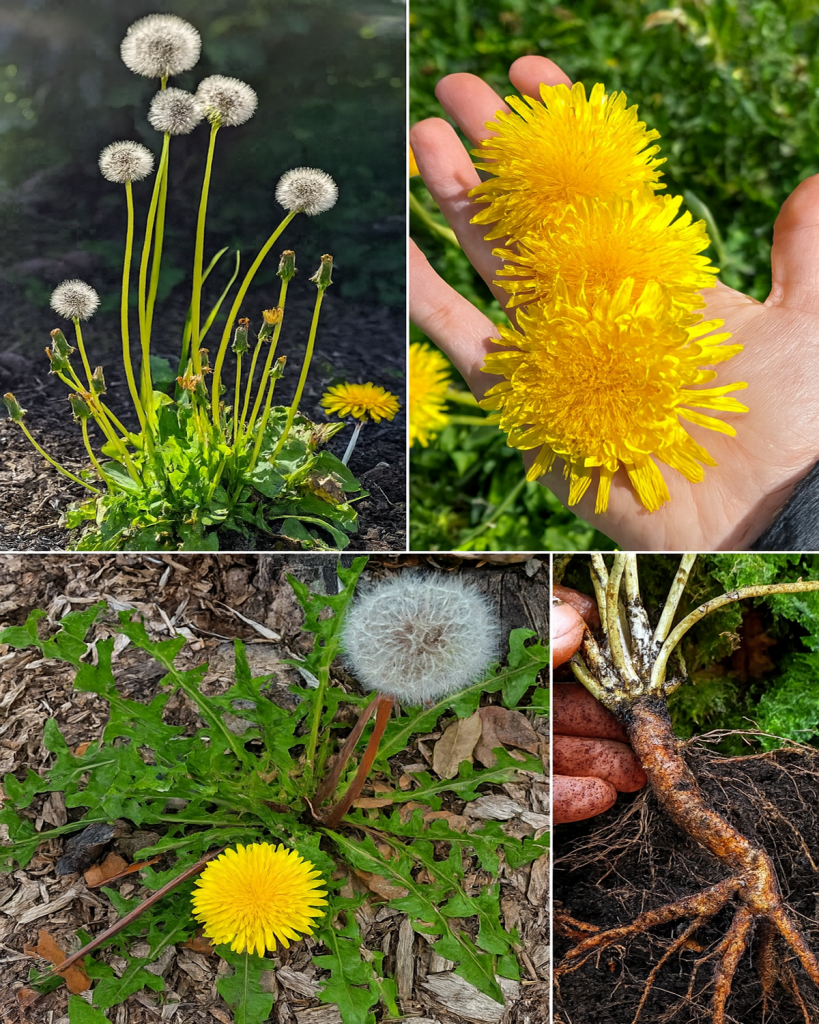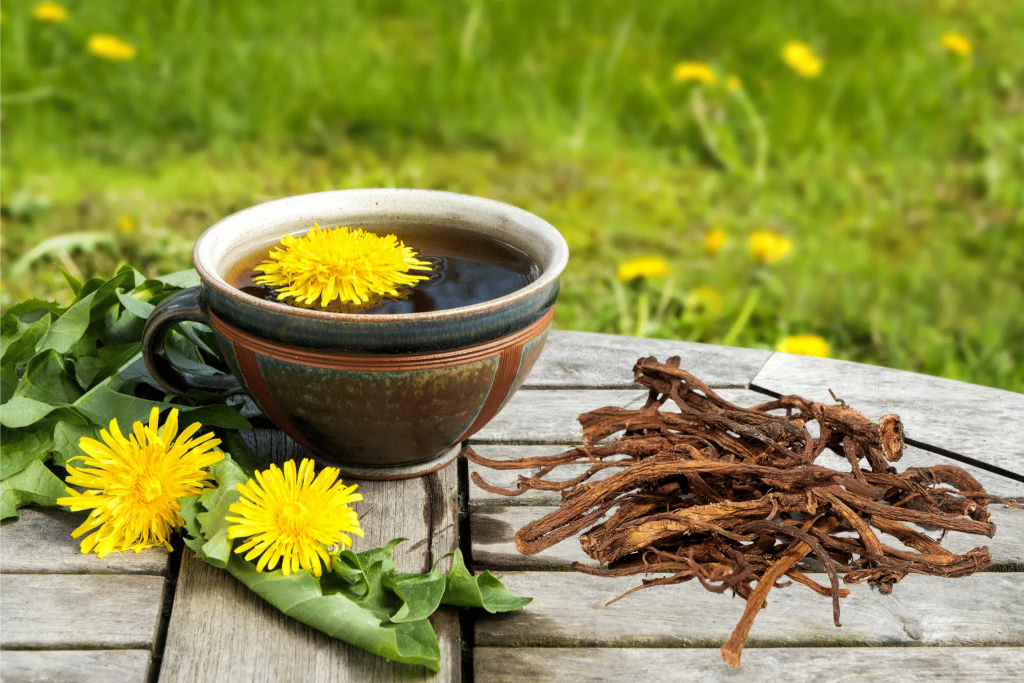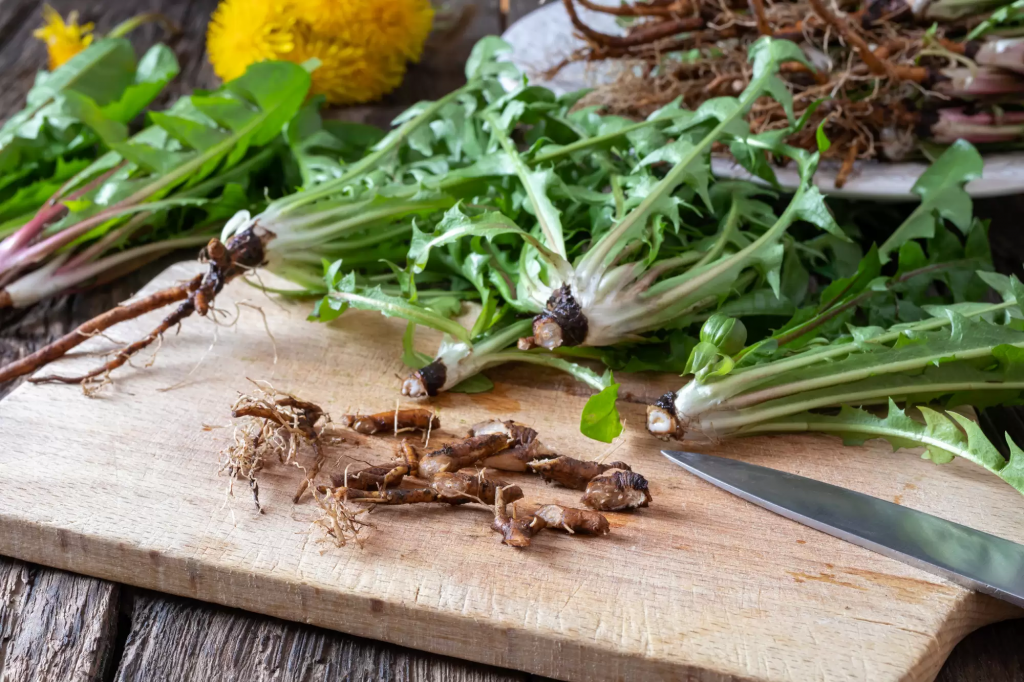Most people see dandelions as pesky weeds scattered across lawns and gardens. Yet, behind their yellow flowers lies an astonishing truth: every part of the dandelion is edible. From the blossoms to the leaves, this humble plant has been a part of traditional diets and folk remedies for centuries. But here’s the part many don’t realize—the real treasure of the dandelion lies underground, in its roots.
Across cultures, dandelion root has been brewed into teas, roasted as a coffee substitute, and used in herbal medicine to support liver health, digestion, and detoxification. Modern studies are now confirming what traditional healers have long believed: dandelion roots contain powerful compounds that may help the body in remarkable ways.
In this article, you’ll discover why dandelion root deserves more respect, how it supports health, and practical ways to incorporate it into your daily routine. Once you learn its hidden potential, you might never look at this “weed” the same way again.

The Nutritional Power of Dandelion Root
Though often overlooked, dandelion root is packed with beneficial compounds.
| Compound | Potential Benefit |
|---|---|
| Inulin (a prebiotic fiber) | Supports gut health and digestion |
| Taraxasterol | Anti-inflammatory, may support immunity |
| Antioxidants | Protect cells from oxidative stress |
| Potassium | Helps regulate blood pressure |
| Iron | Supports red blood cell production |
This combination makes dandelion root a nutrient-dense food source, especially for those seeking natural ways to support digestive and metabolic health.

Dandelion Root for Digestion and Detox
One of the most celebrated uses of dandelion root is its ability to support digestion. The inulin fiber acts as a prebiotic, feeding beneficial gut bacteria and promoting smoother bowel movements.
Traditional herbalists often prescribe dandelion root tea as a gentle digestive tonic, helping ease bloating, indigestion, and constipation. Its natural bitterness also stimulates bile production, supporting liver function and aiding in detoxification.
Case example: In many European households, a cup of roasted dandelion root tea is a daily ritual believed to “cleanse the blood” and maintain a healthy digestive system.
Supporting Liver and Kidney Health
For centuries, dandelion root has been regarded as a natural liver supporter. Modern research suggests it may help reduce oxidative stress on liver cells, enhance detoxification pathways, and even support kidney function by promoting urine flow.
Herbal traditions in China and Native American medicine frequently used dandelion root to address issues related to water retention, swelling, and sluggish metabolism. Today, people continue to turn to dandelion tea as a natural ally for cleansing and balance.

Dandelion Root and Blood Sugar Balance
Another fascinating area of research is dandelion root’s potential impact on blood sugar regulation. Inulin, the prebiotic fiber, slows down sugar absorption in the gut, helping to stabilize blood sugar levels.
Early studies indicate that dandelion root extracts may improve insulin sensitivity, making them promising for individuals concerned about metabolic health. While more research is needed, incorporating dandelion root into a balanced diet may provide gentle support for long-term wellness.
How to Use Dandelion Root at Home
The beauty of dandelion root lies in its versatility. Here are some practical ways to use it:
1. Dandelion Root Tea
- Wash and chop fresh or dried roots.
- Simmer 1–2 teaspoons in water for 10–15 minutes.
- Strain and enjoy as a warm, earthy drink.

2. Roasted Dandelion Coffee Substitute
- Roast dried roots in the oven until dark brown.
- Grind into a powder.
- Brew like coffee for a caffeine-free alternative with a rich, nutty flavor.
3. Powdered Root in Smoothies or Soups
- Grind dried roots into powder.
- Add a teaspoon to smoothies, stews, or broths for a nutrient boost.
4. Tinctures and Capsules
- Available in health stores for those who prefer concentrated extracts.
Other Benefits Beyond the Body
Dandelion root isn’t just for health—it also has practical, everyday uses. Some gardeners use it to enrich compost because of its deep roots that pull nutrients from the soil. Others appreciate its role in sustainable living, transforming a so-called weed into food and medicine.

Safety and Precautions
Dandelion root is generally safe for most people, but a few precautions apply:
- Those allergic to ragweed may also react to dandelion.
- If you’re on diuretics, blood thinners, or medications for blood pressure, consult your doctor before regular use.
- Start with small amounts to see how your body responds.
Conclusion
The dandelion may be dismissed as a weed, but its root holds remarkable value. Rich in fiber, antioxidants, and traditional healing power, dandelion root supports digestion, liver health, and overall balance. Affordable, accessible, and versatile, it’s a natural treasure hiding in plain sight.
Frequently Asked Questions
Can I eat dandelion root raw?
Yes, but most people prefer it dried, roasted, or brewed for better taste and digestibility.
How often should I drink dandelion root tea?
1–2 cups per day is common, but always listen to your body and consult a professional if you have medical conditions.
Is dandelion root safe for long-term use?
In moderation, yes. Herbalists have used it for centuries, but anyone on medications should check with their healthcare provider first.
This article is for informational purposes only and should not replace professional medical advice. Always consult a healthcare provider before starting new remedies or making significant dietary changes.




